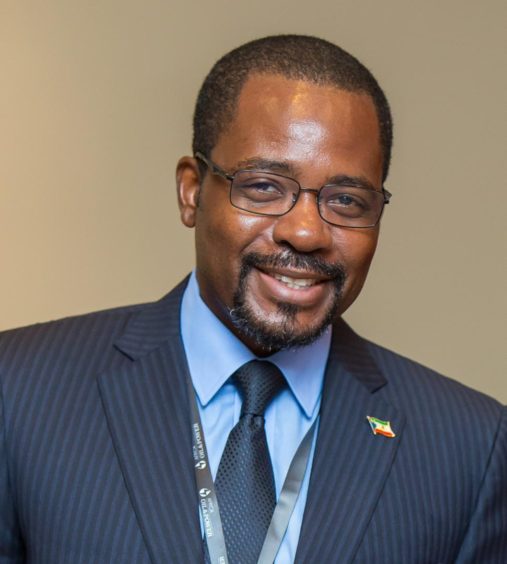
Russia’s state-owned Rosgeo has completed its first phase of work in Equatorial Guinea’s Rio Muni region.
The company is now moving into the second phase. Rosgeo began work in the country in October.
The Equatorial Guinea Ministry of Mines and Hydrocarbons signed two services contracts with Rosgeo’s subsidiaries, Zarubezhgeologia and Yuzhmorgeologia, this year.
The initial phase focused on seismic acquisition in transit zone and state geological mapping. The Rio Muni work is being carried out in large onshore areas and shallow water areas, around the mainland of Equatorial Guinea. Most exploration and production has been carried out offshore around the Bioko island.
Zarubezhgeologia has been working on scouting for state geological mapping, while Yuzhmorgeologia has been working in the transit zone of Rio Muni.
The African Energy Chamber said the Russian work was on one “of the most promising exploration frontiers in Equatorial Guinea” and could trigger new natural resource exploration. The work may add minerals to Equatorial Guinea’s oil and gas resources.
New co-operation
“The geological mapping project undertaken by Rosgeo in the Rio Muni is not only a new pillar of energy co-operation between Equatorial Guinea and Russia, but could also shape the future of our natural resources industry,” said Minister of Mines and Hydrocarbons Gabriel Mbaga Obiang Lima.
“We have also always believed in the onshore hydrocarbons potential of the region, and understanding its geology will prove extremely beneficial to support future oil & gas activities there which could be carried out by local operators.”
The head of the African Energy Chamber, NJ Ayuk, in comments on a webinar this week said Russian involvement in Africa has underperformed, apart from Rosgeo. “A lot of [memorandums of understanding] MoUs are signed but Africa has yet to see progress. The idea that Russia cannot compete is not true. They can do more. Rosgeo has done a phenomenal job in Equatorial Guinea but Russian companies have to do more to get involved. For us, we want to see transactions.”
